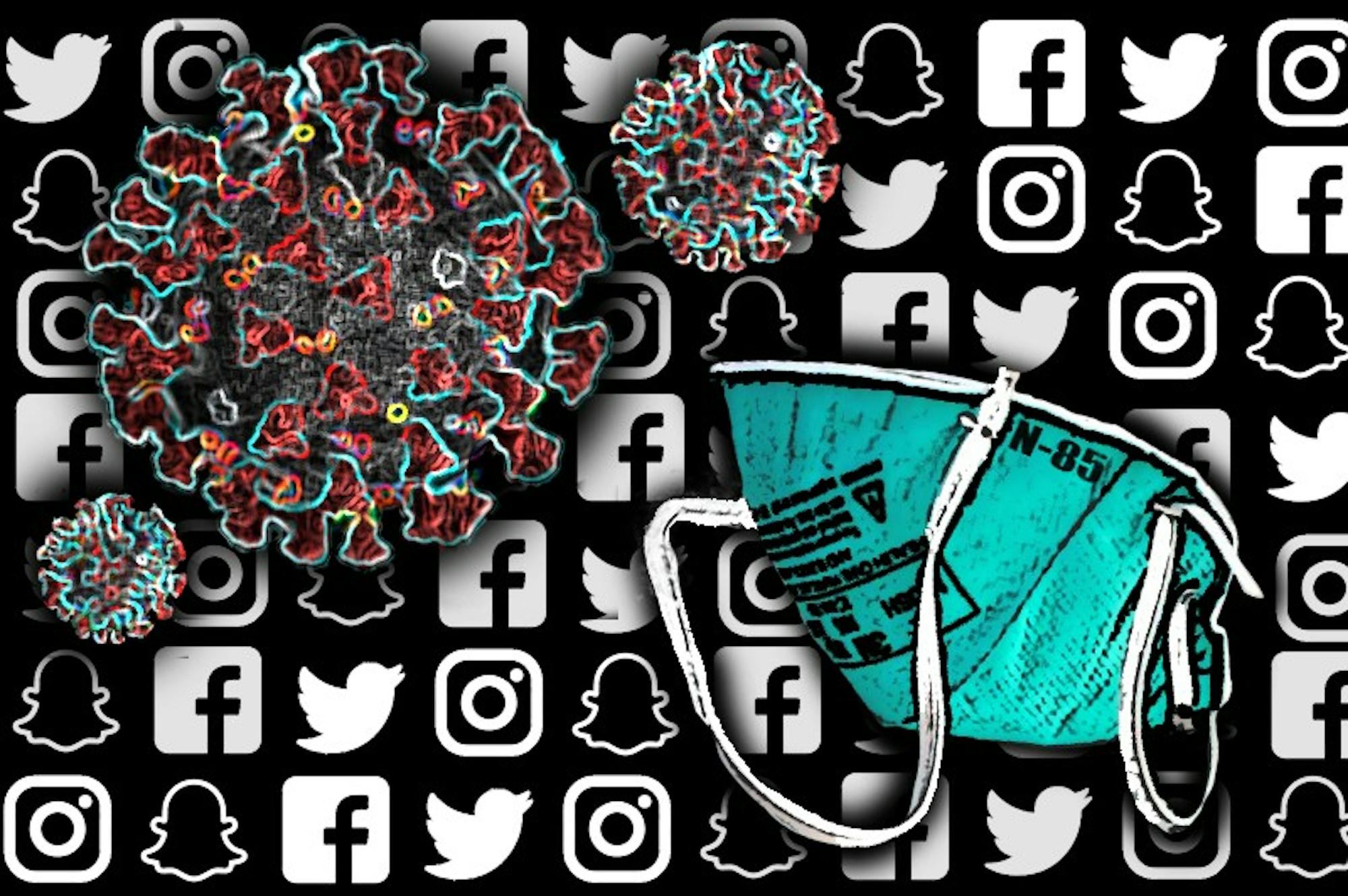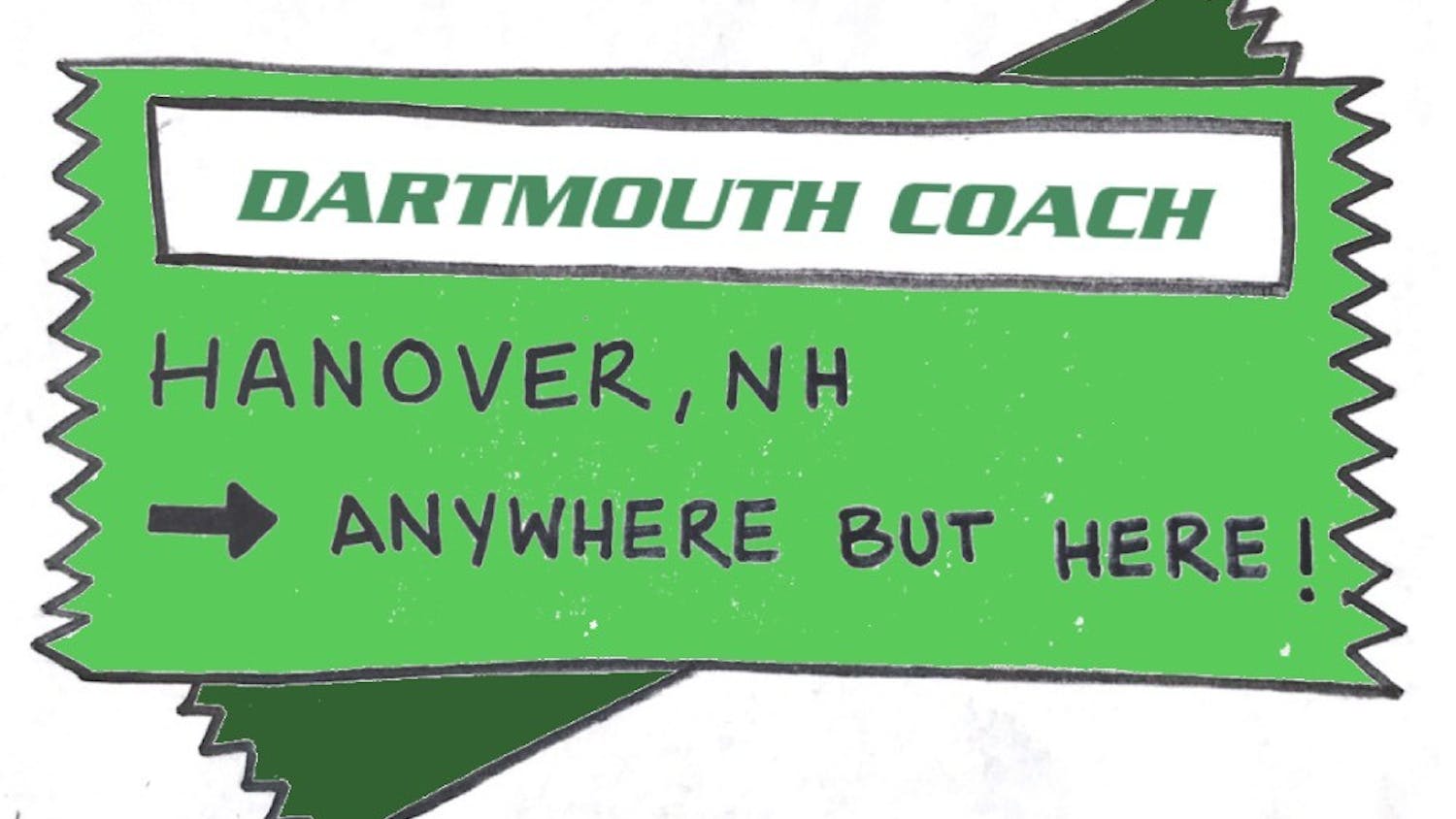People have always used humor as a response to current events, no matter how serious, and Dartmouth students' reactions to COVID-19 have been no different. Dartmouth's meme page, currently titled "Dartmouth Memes for Cold AF Teens," is chock-full of memes about the coronavirus and its effects on the student body.
The page was created by Luke Cuomo '20 during his freshman winter, when other colleges’ meme accounts were cropping up everywhere.
“If you weren’t there when it happened, it’s hard to understand,” he said. “There was this whole meme page culture that was developing. It was a really interesting time.”
Cuomo never expected that the page would still be so active four years later. But it is.
Jennifer Hinds, a graduate student in the program in experimental and molecular medicine at the Geisel School of Medicine, posted a photo that her husband took of a sign at a bus stop on campus that read “NOTICE” and nothing else. She captioned it, "Dartmouth COVID-19 tAsK fOrCE emails be like.”
“We could all enjoy a bitter laugh,” she said of her thoughts when her post started to accumulate likes. But her meme wasn’t just for laughs — she felt it reflected a truth about Dartmouth.
“[The College] started off handling [its response to COVID-19] in what I would call typical Dartmouth fashion,” Hinds said. “A lot of keywords and a lot of reassurances that don’t actually point to any specific action.”
As a graduate student, Hinds said she doesn’t usually feel connected with the undergraduate student body, but in times like this, the meme page changes that.
“Being involved in something like their meme group, especially in times like this when we're all suffering from the same thing, makes me feel like I can relate more to that group of people,” she said.
Paul Hager ’22 edited a photo of a singer performing to an empty Gold Coast lawn with students watching through Zoom and captioned it, “Green Key 20S!! All enrolled students may invite two (2) registered guests to the Zoom (proper wristband required).”
Hager made the meme while he was up late studying for an exam with his friends in their River apartment. He was surprised when it got a lot of attention.
“I was like, ‘I really made it,’” he said, laughing. “‘This is my moment.’”
Hager finds humor in the more trivial repercussions of the pandemic.
“Joking about specific absurdities that will happen because of what is objectively an absurd situation is kind of the best way of dealing with it,” Hager said. “It's not funny that there's this global virus, but just the idea of a concert playing for no one on Gold Coast lawn…” he trailed off as we cracked up.
While Hager wanted to make people laugh, he also wanted to create an analogy that would show how online classes were not a viable replacement for in-person instruction. No one would question the absurdity of an online Green Key — why are remote classes any more palatable?
Jacob Kingsley ’23 posted a meme that poked fun at Dean of the College Kathryn Lively for routinely sending emails that look essentially identical to updates from the COVID-19 task force.
“I was glad to see that it did well and that other people resonated with the joke,” he said. “I wasn't the only one who was confused why we were getting a hundred emails a day.”
But when Kingsley sent his meme in another group chat, an international student told him not to joke about Lively because international students depended on her emails to know where they would be living in the spring.
“I was like, ‘Oh, that’s a good point,’” Kingsley said. “But I think it was all just generally in good fun. I think everyone who is posting on there is taking this seriously. It's just a way for us to work through this in a funny way and bring each other up in this time that kind of sucks.”
This is not the first time that the meme page has fixated on a single topic. The example that stands out to the page’s creator is “NapkinGate” — an incident during Cuomo’s freshman winter in which Dartmouth Dining Services took away the napkin dispensers on each table at its dining locations, a move that prompted strong reactions from students.
“If you speak to any ’20 and say ‘NapkinGate,’ they know what you mean, and that’s not something that could have happened without the meme page,” he said. “There’s this shared consciousness.”
While humor connects us as we commiserate together, the reality is that the virus has affected Dartmouth students in very different ways.
Ashwini Narayanan ’22 is from Bangalore, India and is currently back home after a stressful decision about where to spend the term. She has mixed feelings on how the College handled the situation for international students.
“Clearly, there's not enough infrastructure, staffing, planning and communication from the College,” she said. Two weeks after the initial chaos, though, she is more inclined to believe that they’re trying their best.
As an international student, Narayanan felt distanced from the rest of campus during the transition to remote classes.
“It's a whole host of things that made our situation so unique,” Narayanan said, citing the anxieties of traveling through high-risk countries, the effect on financial aid, accessibility of healthcare and concerns over being allowed back into the country if she left.
Narayanan said she “enjoys the occasional meme” and thinks it’s funny to joke about online classes, but that there’s also the question of who can joke about what.
“People that are affected by things that change their lives in really crazy ways may or may not use humor to cope with it, but it isn't someone else's right to joke about it for them,” she said. “You can't take someone else's situation and turn it into your own joke.”
Meanwhile, Cuomo advocates for turning our surroundings into comedy.
“I think it would be illogical to say that we can't make fun of the circumstances because of the unfortunate factors of reality,” Cuomo said. “Like everything, it's a delicate balance. People's tastes differ, and there's an invisible line that you don’t see until you hit it.”
Cuomo and Narayanan don’t disagree on this point — they both appreciate the humor of the meme page while remaining cognizant of boundaries. Many Dartmouth students seem to agree that memes about the circumstances surrounding the virus are okay, but jokes that target a specific group of people are not.
Last week, Vanessa Mauricio ’21, the communications vice president of Alpha Xi Delta sorority, sent an email to her sisters after someone sent a coronavirus joke about Italians in the sorority GroupMe.
“Whenever you post in the GroupMe or online, it is a representation of not only yourself, but everyone who you're affiliated with at Dartmouth,” she said. “We're allowed to post memes, and some of them are hilarious and relatable, but it does start to affect more than just you when it targets specific groups that are affected.”
Mauricio said that her mindset is influenced not only by her position in her sorority, but also by her ethnicity.
“I am Chinese,” she said. “I haven’t really bared the criticism, but Trump has been calling it the Chinese virus, so there's been a rising fear against Chinese people in general.”
But Mauricio enjoys the meme page — she visits it when she wants to feel happy and connected.
“If I just can't find a way to be happy or laugh, I'll go to the meme page and I'll chuckle to myself and it makes me feel better,” she said. “It's also a way to stay connected with the people that you are close to or want to be close to. It's like, ‘Here, I’m going to let you into my circle of humor.’”
It’s not just about laughs, though. The meme page can be a source of actual information and conversation. Kingsley brought up comedians like John Oliver, who conduct in-depth and credible research as part of their shows.
“People are turned off by the idea of mainstream media and watching the news when they know it's all going to be negative,” he said. “If you can get it in a more positive, funny format, it's much better and more accessible to a lot of people.”
Kingsley said that we often struggle with ways to address overwhelming events, but humor is something that comes naturally.
“We try to talk about it and think about it in ways that are accessible,” he said, “which, for our generation, is memes.”
One phrase from Cuomo struck me: “the shared misery of Zoom.” Dartmouth students are currently sharing feelings of absurdity, despair, hilarity — and our generation is going to express those feelings in a way that is uniquely ours.
In many ways, humor is a luxury — it’s the capacity to think past survival to something as frivolous as a meme. But in the openness of a Facebook page, where anyone can post, I find a surprising amount of hope and collaboration.
“Without an open and accessible place to share this content, this would be a little more isolating,” Cuomo said. “It would make hard times a little bit harder.”




